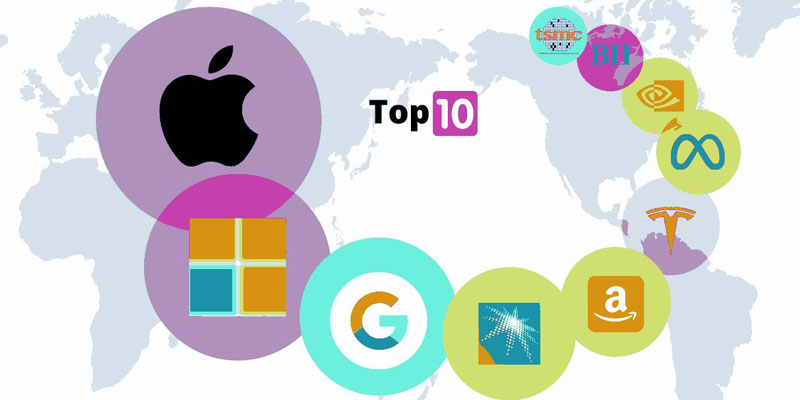

How to Save Money for a Home Down Payment
Nov 05, 2024 By Verna Wesley
Planning your down payment is one of the most critical steps in buying a house. It is not just about securing your stake in the house; it hugely affects your mortgage terms and monthly payments. Therefore, you must build a strategic saving and budgeting approach to achieve your dream. Throughout this article, you will learn how to realistically assess your finances, set obtainable savings goals, and execute workable steps that move you toward building what you will need for a down payment.
How Much Do You Need Down Payment for a House?
 The amount you will require to deposit for a house will vary greatly depending on various variables. These variables will thus be crucial in setting achievable goals and determining your timeline for purchasing the house.
The amount you will require to deposit for a house will vary greatly depending on various variables. These variables will thus be crucial in setting achievable goals and determining your timeline for purchasing the house.
Conventional Mortgages
Conventional loans typically require a 20% down payment on the house's purchase price. Many lenders today offer options with lower down payments, and a 3% down for qualified buyers is an everyday low. Remember that down payments of less than 20% typically must be compensated with PMI, an added monthly cost.
Government-Backed Loans
If you qualify, government-backed loans can offer smaller down payments:
- FHA loans: These typically require at least 3.5% down.
- VA loans: For veterans and service members who qualify, there is potentially 0% down.
- USDA loans: Similar to VA loans but for rural homebuyers, these loans may allow 0% down in some instances.
Calculating Your Down Payment
To get an idea of how much home you can buy, determine your target down payment by considering:
- Research average home prices in your desired area.
- Choose a loan type that best fits your financial situation.
- Calculate the required percentage based on the loan type and house price.
How to Save for Your Down Payment
Open a Down-Payment Savings Account
First, open a specific savings account for the down payment. This will help you keep a close eye on your finances and ensure you won't use this money elsewhere. Look for high-yield savings accounts to find attractive interest rates.
Automate Your Savings
Now, it's time to set up those automatic transfers from your checking account into your down payment savings account. This "pay yourself first" strategy ensures that you save regularly without having to remember or make a conscious effort every month. Try starting with a percentage of your income that works for you, then gradually increase it as you get used to the new budget.
Cut Unnecessary Expenses
Go through your monthly expenses and see what you can cut. Consider:
- Cut back on dining out and entertainment expenditures
- Eliminate unused subscriptions and memberships
- Find cheaper alternatives for ongoing services
Find Additional Sources of Income
Explore ways to boost your income to accelerate how much you can save. Some options could be:
- Picking up a part-time job or freelancing
- Selling items you no longer use or need
- Turning a hobby or skill into cash.
Put any extra cash you earn from these endeavors toward your down payment. This disciplined approach might help you reach your goal more quickly and open up more home purchasing possibilities.
Down Payment Assistance Programs

Don't lose hope if you find saving for a down payment hard. Many programs for down payment assistance are targeted at making homeownership easier. These down payment assistance programs give qualified homebuyers gift money that may cut the amount you'll have to save.
Government-Sponsored Programs
Many states and localities offer assistance for first-time homebuyers, which can be as aggressive as grants of low-interest loans or even tax credits. The Federal Housing Administration, FHA, offers loans with low down payment requirements, about 3.5% of the house's purchase price.
NonprofitNonprofit Organizations
Many nonprofit nonprofit entities also offer down payment assistance. These programs target demographics such as low-income families, veterans, and essential workers. Check local nonprofit nonprofits in your area for potential opportunities.
Employer Assistance
Down payment assistance may be offered with some jobs. It may also be part of a matched savings program or a forgivable loan. Check with your HR department to determine if your company offers benefits like this.
Crowdfunding Options
Down payment crowdfunding sites have popped up in the last couple of years. These allow friends, family, and strangers to contribute to your house-buying fund. It's not conventional, but it's a creative way to fill the gap in your savings.
What to Do When You Have Enough Savings for a Down Payment
Congratulations on saving enough money for a down payment. Now, the time has come to take those last few crucial steps in making your dreams of homeownership a reality. Here are the steps to maximize your savings and lock in your dream home.
Get Pre-approved for a Mortgage
Before house hunting, get pre-approved for a mortgage. The lender will check your income and credit history to let you know how much they will lend you. A pre-approval letter puts you in a stronger position as a buyer and helps target homes within your budget.
Research the Housing Market
Get into the nitty-gritty of the local real estate market: recent sale prices, neighborhood trends, and rates of appreciation. This will help you know whether you are making an informed decision and how to negotiate when you find your perfect home.
Gather Your Home-Buying Dream Team
Gather a team of reliable professionals who can advise and support your home-buying journey. This typically includes a real estate agent, mortgage lender, and attorney. Their experience in transactions and paperwork will be helpful and essential in guiding you through usually complex transactions and paperwork.
Begin House Hunting
With your pre-approval and team in place, you can start house hunting for that perfect property. Be open-minded but disciplined regarding budget and priorities. House hunting often requires patience and some give-and-take.
Conclusion
As you set forth on this path toward homeownership, be sure not to forget that a well-planned down payment strategy can often be very critical to the overall success of your effort. Have specific savings goals, consider your options for funding carefully, and make wise financial decisions that will make your dream a reality. Keep to your budget, continue to be patient with the process, and don't hesitate to seek professional advice if you need it. With careful planning and dedication, you will be holding the keys to your new home in no time; some of the challenges of saving for a down payment will have been overcome. Your future self will thank you for the effort and sacrifices you made today.
-
 Investment Jan 22, 2024
Investment Jan 22, 202410 Biggest Companies in the World
the largest publicly traded corporations worldwide are across several industries. A firm's market capitalization is determined by multiplying the number of outstanding shares by the per-share price at the time of valuation. The bulk of the top 10 corporations on the list bring in hundreds of billions each year.
-
 Savings Nov 01, 2024
Savings Nov 01, 2024How To Save Money When Eating Out: Clever HacksTo Save Money On Dining Out
Save half of your meal, use credit cards, share meals, and benefit from loyalty programs or coupons when dining out to save money
-
 Savings Nov 05, 2024
Savings Nov 05, 2024How To Make Your Finances Fun With “Gamification”
When tired of feeling that budgeting is such a burden, you could make saving money some kind of game that's fun for you.
-
 Know-how Jan 26, 2024
Know-how Jan 26, 2024SSI vs. SSDI: Which One Is Right for You?
Confused between SSI and SSDI? Our comprehensive guide helps you choose the right one. Learn the eligibility criteria and benefits today!